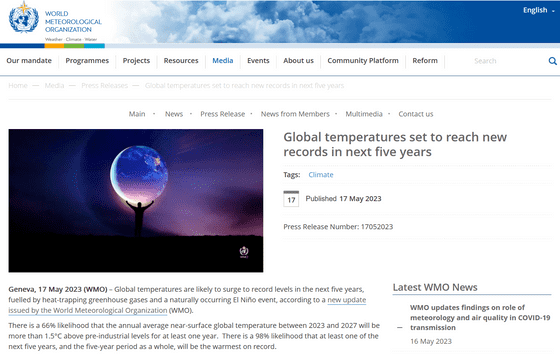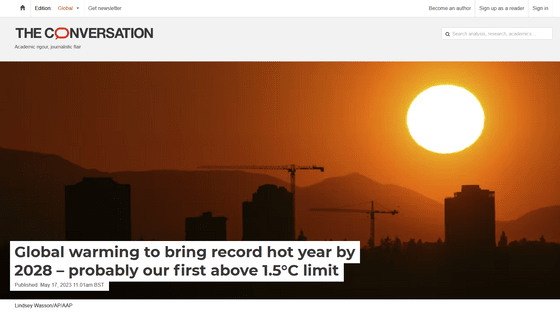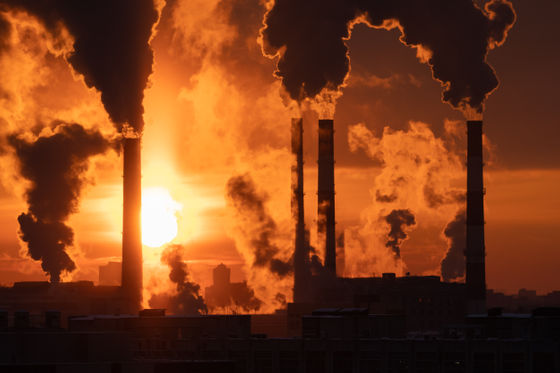The World Meteorological Organization warns that the record heat wave will cause the first ``temperature rise of 1.5 degrees above the pre-industrial revolution'' in the history of observation by 2027

Based on
Global temperatures set to reach new records in next five years | World Meteorological Organization
https://public.wmo.int/en/media/press-release/global-temperatures-set-reach-new-records-next-five-years

Global warming to bring record hot year by 2028 – probably our first above 1.5°C limit

In a press release dated May 17, 2023, the WMO stated, 'During the five-year period from 2023 to 2027, it is possible that there will be years in which the global average annual temperature rises by more than 1.5 degrees above pre-industrial levels.66 %,' he announced. In addition, it is said that there is a 98% chance that the highest temperature ever recorded will be set for one or more of the next five years, or all five years.
“This report does not mean we will exceed the 1.5°C target set by the Paris Agreement forever, but it will temporarily increase the frequency of exceeding 1.5°C,” said WMO Director-General Péteri Taalas. In particular, the WMO is sounding the alarm,' he said.
In particular, in 2023,

Since the Paris Agreement aims to curb global warming over the long term, it does not mean that the effort will be derailed even if it temporarily exceeds the 1.5 degree target. However, if global warming continues unchecked, there is a high possibility that we will not be able to maintain the original target of 2 degrees Celsius.
The hottest year on record was 2016, when a record El Niño event occurred. Since then, warming has been moderated slightly by the occurrence of a cooling
Moreover, the La Niña phenomenon, which had been holding back temperature rise, will end in March 2023, and it is predicted that El Niño will reappear within the next few months. In general, the effects of the El Niño phenomenon appear in the following year, so full-scale temperature rise is expected to arrive in 2024.

Andrew King, a climatologist at the University of Melbourne, Australia, wrote in an article for The Conversation, an independent non-profit news organization, that ``because of insufficient efforts to reduce greenhouse gas emissions and address climate change. In fact, we have already warmed the planet by more than 1.2 degrees, and we should not think of the option of inaction, because if we do not act, it will be decades or even hundreds of years from now. 'This is because record-breaking heat will continue over the next few years, further exacerbating the impacts of climate change.'
Related Posts:
in Posted by log1l_ks







